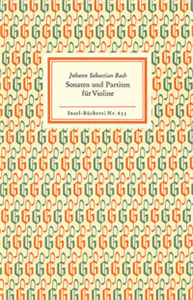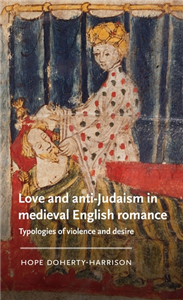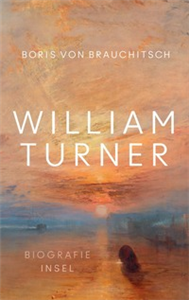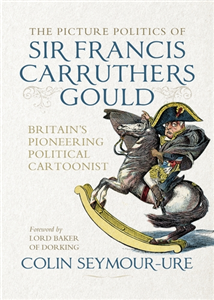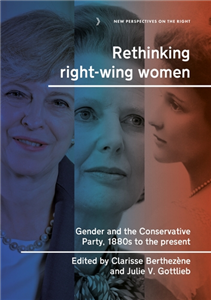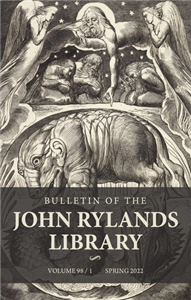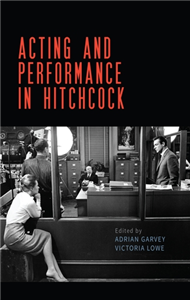Your Search Results
-
Wiley
John Wiley & Sons, Inc. (Wiley)is a renowned, global publishing company focusing on academic publishing for professionals and researchers within the field of science and medicine.
View Rights Portal
-
Promoted Content
-
Promoted ContentJuly 1958
Sonaten und Partiten für Violine allein
by Johann Sebastian Bach, Günther Haußwald, Yehudi Menuhin, Günther Haußwald
Die Faksimileausgabe von Bachs Werken für Solovioline zeigt in der ausdrucksvollen Handschrift des Komponisten seine persönlichen Wünsche der Interpretation. Das Geleitwort von des bedeutenden Violinisten Yehudi Menuhin ergänzt die sachlichen Ausführungen des Herausgebers Günter Hausswald mit dem Bekenntnis des Künstlers zu einem sprechenden Gesamtbild.
-
 Trusted Partner
Trusted Partner
-
 Trusted Partner
Trusted Partner
-
 Trusted Partner
January 1995
Trusted Partner
January 1995Der Urquell des Yoga
Die Yoga-Sutras von Patanjali - erschlossen für den Menschen von heute
by Iyengar, B K / Vorwort von Menuhin, Yehudi; Übersetzt von Eggert, Jochen
-
 Trusted Partner
September 2000
Trusted Partner
September 2000Licht auf Pranayama
Das grundlegende Lehrbuch der Atemschule des Yoga
by Iyengar, B K / Vorwort von Menuhin, Yehudi; Übersetzt von Möhring, Hans U
-
 Trusted Partner
FictionSeptember 2017
Trusted Partner
FictionSeptember 2017A Vision of Battlements
by Anthony Burgess
by Andrew Biswell, Paul Wake
A Vision of Battlements is the first novel by the writer and composer Anthony Burgess, who was born in Manchester in 1917. Set in Gibraltar during the Second World War, the book follows the fortunes of Richard Ennis, an army sergeant and incipient composer who dreams of composing great music and building a new cultural world after the end of the war. Following the example of his literary hero, James Joyce, Burgess takes the structure of his book from Virgil's Aeneid. The result is, like Joyce's Ulysses, a comic rewriting of a classical epic, whose critique of the Army and the postwar settlement is sharp and assured. The Irwell Edition is the first publication of Burgess's forgotten masterpiece since 1965. This new edition includes an introduction and notes by Andrew Biswell, author of a prize-winning biography of Anthony Burgess.
-
 Trusted Partner
Literature & Literary StudiesApril 2020
Trusted Partner
Literature & Literary StudiesApril 2020Interweaving myths in Shakespeare and his contemporaries
by Janice Valls-Russell, Agnès Lafont, Charlotte Coffin
This volume proposes new insights into the uses of classical mythology by Shakespeare and his contemporaries, focusing on interweaving processes in early modern appropriations of myth. Its 11 essays show how early modern writing intertwines diverse myths and plays with variant versions of individual myths that derive from multiple classical sources, as well as medieval, Tudor and early modern retellings and translations. Works discussed include poems and plays by William Shakespeare, Christopher Marlowe and others. Essays concentrate on specific plays including The Merchant of Venice and Dido Queen of Carthage, tracing interactions between myths, chronicles, the Bible and contemporary genres. Mythological figures are considered to demonstrate how the weaving together of sources deconstructs gendered representations. New meanings emerge from these readings, which open up methodological perspectives on multi-textuality, artistic appropriation and cultural hybridity.
-
 Trusted Partner
Literature & Literary StudiesSeptember 2025
Trusted Partner
Literature & Literary StudiesSeptember 2025Love and anti-Judaism in medieval English romance
Typologies of violence and desire
by Hope Doherty-Harrison
Love and anti-Judaism is a new examination of medieval romance for the questions it poses of the most significant events in Christian history. Providing new readings of Sir Gawain and the Green Knight, Sir Orfeo, Sir Gowther and Sir Amadace, the book argues that romance explores depictions of love-and the sacrifices it may necessitate-in the Hebrew Bible, especially where they do not easily fit into interpretations asserting that this history must prefigure Christ and the crucifixion. An examination of anti-Judaism as a discourse of violence and desire that could be turned inwardly to expose the irresolution in Christianity, this book will provoke new investigations into the religious crises of medieval romance.
-
 Trusted Partner
October 2024
Trusted Partner
October 2024William Turner
Biografie | Ein Leben aus der Perspektive seiner Bilder | Mit zahlreichen farbigen Abbildungen
by Boris von Brauchitsch
Von seinen Zeitgenossen entweder gefeiert oder für verrückt erklärt, gilt William Turner heute längst als der bedeutendste Künstler Großbritanniens. Kein anderer Maler des 19. Jahrhunderts hat die weitere Entwicklung der Kunst stärker geprägt als er – ob Impressionismus, Abstraktion oder Futurismus, Turner hat vieles vorweggenommen, was erst Jahrzehnte nach seinem Tod Furore machen sollte. William Turner (1775-1851), Sohn eines Barbiers, verfolgte seinen Traum von Anerkennung und Wohlstand erfolgreich mit den Mitteln der Kunst. Wohl keiner reiste und zeichnete so viel wie er, bediente einerseits gekonnt den Kunstmarkt und schuf zugleich Werke, von denen der Autor und Sammler William Beckford sagte, Turner »malt, als ob sein Hirn und seine Fantasie auf der Palette mit Seifenlauge und Schaum vermischt wären.« Zu seinem 250. Geburtstag folgt Boris von Brauchitsch dem exzentrischen Maler in dieser atmosphärisch dichten Biografie vor gesellschaftspolitisch geweitetem Horizont auf seinen abenteuerlichen Reisen durch Europa, beobachtet ihn bei seinem Wettstreit mit den Großen der Kunstgeschichte, begleitet ihn beim Kampf für die Ebenbürtigkeit der Landschaftsmalerei und geht so manchem Geheimnis nach, das ihn umgibt.
-
 Trusted Partner
October 2024
Trusted Partner
October 2024William Turner
Biografie | Ein Leben aus der Perspektive seiner Bilder | Mit zahlreichen farbigen Abbildungen
by Boris Brauchitsch
Von seinen Zeitgenossen entweder gefeiert oder für verrückt erklärt, gilt William Turner heute längst als der bedeutendste Künstler Großbritanniens. Kein anderer Maler des 19. Jahrhunderts hat die weitere Entwicklung der Kunst stärker geprägt als er – ob Impressionismus, Abstraktion oder Futurismus, Turner hat vieles vorweggenommen, was erst Jahrzehnte nach seinem Tod Furore machen sollte. William Turner (1775-1851), Sohn eines Barbiers, verfolgte seinen Traum von Anerkennung und Wohlstand erfolgreich mit den Mitteln der Kunst. Wohl keiner reiste und zeichnete so viel wie er, bediente einerseits gekonnt den Kunstmarkt und schuf zugleich Werke, von denen der Autor und Sammler William Beckford sagte, Turner »malt, als ob sein Hirn und seine Fantasie auf der Palette mit Seifenlauge und Schaum vermischt wären.« Zu seinem 250. Geburtstag folgt Boris von Brauchitsch dem exzentrischen Maler in dieser atmosphärisch dichten Biografie vor gesellschaftspolitisch geweitetem Horizont auf seinen abenteuerlichen Reisen durch Europa, beobachtet ihn bei seinem Wettstreit mit den Großen der Kunstgeschichte, begleitet ihn beim Kampf für die Ebenbürtigkeit der Landschaftsmalerei und geht so manchem Geheimnis nach, das ihn umgibt.
-
 Trusted Partner
The ArtsDecember 2024
Trusted Partner
The ArtsDecember 2024The picture politics of Sir Francis Carruthers Gould
Britain's pioneering political cartoonist
by Mark Bryant
This is the first major study of Britain's pioneering graphic satirist, Sir Francis Carruthers Gould (1844-1925), the first staff political cartoonist on a daily newspaper in Britain, and the first of his kind to be knighted. Written by the distinguished media historian, Colin Seymour-Ure, it is essential reading for anyone interested in cartoons, caricature and illustration and will also be welcomed by students of history, politics and the media. It examines Gould's career in Fleet Street until his retirement after the First World War. It also discusses his illustrations for magazines and books and there is an analysis of his use of symbolism and literary allusion to lampoon such eminent politicians as Gladstone and Joseph Chamberlain. As Lord Baker says in his Foreword, this book is 'a major contribution to our knowledge of British cartooning.'
-
 Trusted Partner
Humanities & Social SciencesJanuary 2026
Trusted Partner
Humanities & Social SciencesJanuary 2026Rethinking right-wing women
Gender and the Conservative Party, 1880s to the present
by Clarisse Berthezène, Julie Gottlieb
Rethinking Right-Wing Women explores the institutional structures for and the representations, mobilisation, and the political careers of women in the British Conservative Party since the late 19th century. From the Primrose League (est.1883) to Women2Win (est.2005), the party has exploited women's political commitment and their social power from the grass-roots to the heights of the establishment. Yet, although it is the party that extended the equal franchise, had the first woman MP to sit Parliament, and produced the first two women Prime Ministers, the UK Conservative Party has developed political roles for women that jar with feminist and progressive agendas. Conservative women have tended to be more concerned about the fulfilment of women's duties than the realisation of women's rights. This book tackles the ambivalences between women's politicisation and women's emancipation in the history of Britain's most electorally successful and hegemonic political party.
-
 Trusted Partner
Literature & Literary StudiesOctober 2023
Trusted Partner
Literature & Literary StudiesOctober 2023Reading David Foster Wallace between philosophy and literature
by Allard den Dulk, Pia Masiero, Adriano Ardovino
-
 Trusted Partner
Literature & Literary StudiesJune 2022
Trusted Partner
Literature & Literary StudiesJune 2022Bulletin of the John Rylands Library 98/1
The Artist of the Future Age: William Blake, Neo-Romanticism, Counterculture and Now
by Douglas Field
This special issue of the Bulletin of the John Rylands Library is devoted to William Blake. It explores the British and European reception of Blake's work from the late nineteenth century to the present day, with a particular focus on the counterculture. Opening with two articles by the late Michael Horovitz, an important figure in the 'Blake Renaissance' of the 1960s, the issue goes on to investigate the ideological struggle over Blake in the early part of the twentieth century, with particular reference to W. B. Yeats. This is followed by articles on the artistic avant-garde and underground of the 1960s and on Blake's significance for science fiction authors of the 1970s. The issue closes with an article on the contemporary Belgian art collective maelstrÖm reEvolution.
-
 Trusted Partner
Trusted Partner
-
 Trusted Partner
The ArtsOctober 2006
Trusted Partner
The ArtsOctober 2006William Holman Hunt
Painter, painting, paint
by Carol Jacobi
This is a fundamental reassessment of the work of William Holman Hunt, and the first critical text to reproduce his pictures in colour and set him on an international stage. Introducing a new critique of the autobiography and drawing on hundreds of private letters, drawings and paintings, the author depicts a radical man of his times, deeply troubled by the pivotal concerns of the materialist age - the isolation of the individual, the collapse of faith and the status of art - and seeking solutions through a systematic testing of the extremes of painting. A close examination of the pictures, including neglected later works, combined with recent scientific research relate the physical act of painting, and the paint, back to the body of the artist. Lavishly illustrated and engagingly written, this book answers the longstanding lack of any monograph on Hunt and will make compelling reading for undergraduate and graduate students of History of Art, Victorian Studies, English Literature and Religious Studies, as well as curators, conservators and the artist's many admirers. ;
-
 Trusted Partner
September 1981
Trusted Partner
September 1981Die großen Dramen, Tragödien, Historien und Komödien in zehn Bänden
Ausgewählt, nach den Erstdrucken neu übersetzt und erläutert von Rudolf Schaller. Geschenkausgabe mit Dekorüberzug
by William Shakespeare
William Shakespeare wurde vermutlich am 23. April 1564 in Stratford-upon-Avon geboren. Seine schöpferische Sprachkraft und die meisterhafte psychologische Gestaltung seiner Charaktere begründen seine Bedeutung und seinen Ruhm als Dramatiker und Dichter. Werke wie König Johann, Ein Sommernachtstraum, Der Kaufmann von Venedig, oder seine Tragödien Hamlet, Romeo und Julia, Othello oder König Lear markieren Höhepunkte der Weltliteratur und sind von den großen internationalen Bühnen nicht mehr wegzudenken. William Shakespeare verstarb am 23. April 1616 in Stratford-upon-Avon.
-
 Trusted Partner
The ArtsMarch 2026
Trusted Partner
The ArtsMarch 2026Acting and performance in Hitchcock
by Adrian Garvey, Victoria Lowe
Hitchcock's professed disdain for actors is belied by the extraordinary range and depth of performances featured in his films. It might even be argued that many stars gave their richest and most complex performances in his work. Hitchcock's films are also imbued with the theme of performance, as when his fugitive men and errant women assume fragile new identities and move between roles. Actors and other performers also often feature as characters. However, the exhaustive academic literature on Hitchcock has to date produced surprisingly little work about acting and performance in his films. The collection includes contributions from a range of leading scholars on Hitchcock, performance, stardom, and British Cinema, including Charles Barr, David Greven, Mark Glancy, Lucy Bolton, Lawrence Napper and Michael Williams, and an interview with leading composers/accompanists Neil Brand and Stephen Horne on scoring performance in Silent Hitchcock.
-
 Trusted Partner
The ArtsJanuary 2019
Trusted Partner
The ArtsJanuary 2019Carol Reed
by Peter William Evans
Carol Reed is one of the truly outstanding directors of British cinema, and one whose work is long overdue for reconsideration. This major study ranges over Reed's entire career, combining observation of general trends and patterns with detailed analysis of twenty films, both acknowledged masterpieces and lesser-known works. Evans avoids a simplistic auteurist approach, placing the films in their autobiographical, socio-political and cultural contexts and relating these to the analysis of Reed's art. The critical approach combines psychoanalysis, gender theory, and the analysis of form. Archival research is also relied on to clarify Reed's relations with his creative team, financial backers and others. Films examined include Bank Holiday, A Girl Must Live, Odd Man Out, The Fallen Idol, The Third Man, Night Train to Munich, The Way Ahead, Outcast of the Islands, Trapeze and Oliver!.






